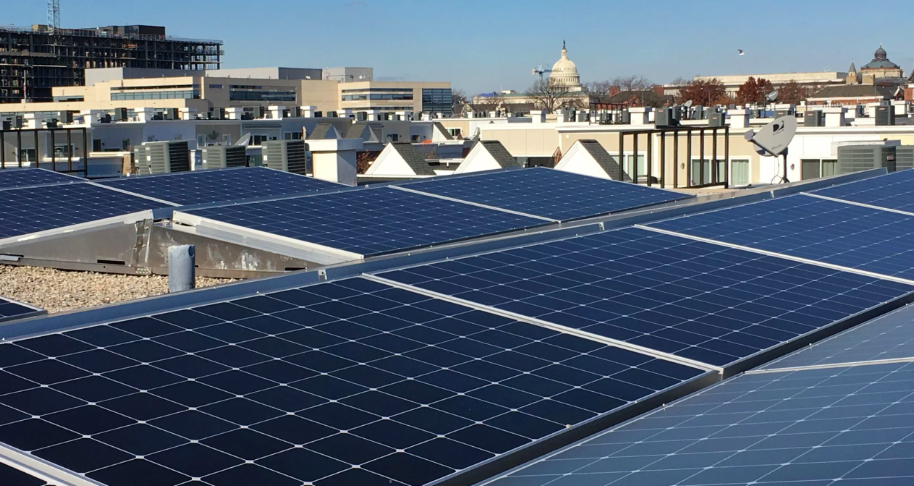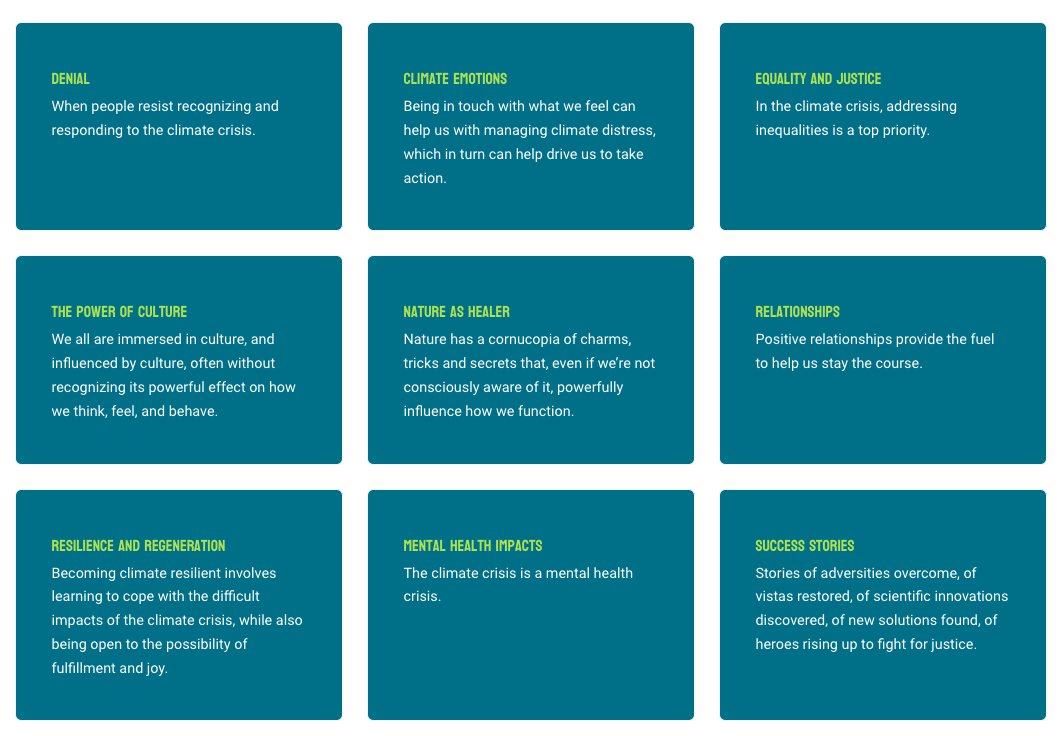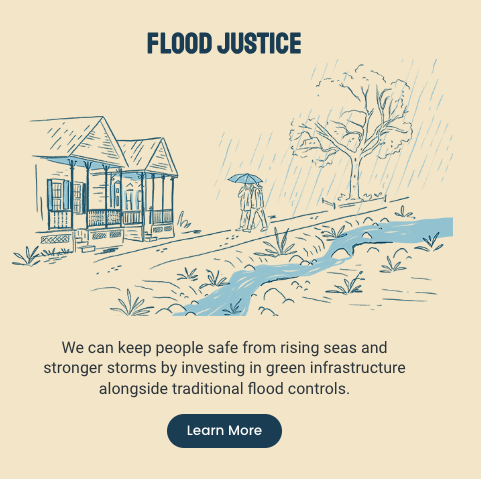Resources
Search below for resources covering the intersection of climate engagement, social science and data analytics.
RESULTS
Pathways to Power Workshop
How are you measuring your organization’s efforts and advances towards meaningful long-term change? Would you like to begin the process of identifying a unique set of metrics that best suit your organizational goals and power-building strategies?
The Federal Funding Primer on Climate Justice
This Federal Funding Primer on Climate Justice provides an invaluable roadmap for navigating the maze of funding opportunities provided by Justice40, the Inflation Reduction Act (IRA), and Bipartisan Infrastructure Law (BIL). The Justice40 Initiative is a requirement of Executive Order 14008 and mandates that 40 percent of the benefits from environmental and climate justice related federal investments go to communities that are disadvantaged, underserved, or overburdened by pollution.
Unlocking Clean Energy Incentives for Underserved Communities
The Inflation Reduction Act provides an unprecedented opportunity to foster more equitable participation in clean energy development and channel resources into historically marginalized communities. Because of the IRA’s Direct Pay provision, nonprofits, and state, local, and Tribal governments can now access tax credits over 10 years for clean energy projects in underserved communities. This democratizes energy, unlocking the potential for diverse entities across the U.S. to own clean energy assets as a wealth-building opportunity.
Environmental Polling Roundup - January 19th, 2024
This post includes climate and environment headlines, data points, and key takeaways from recent public polls - including a new analysis of the impact of voters’ climate attitudes on the 2020 presidential election results, new polling on electric vehicles, new polling on competitiveness with China on clean energy, and a new analysis of climate justice attitudes across Yale and George Mason’s “Six Americas” segments.
Support for climate justice across Global Warming’s Six Americas
Support for climate justice and recognition of climate disparities vary widely across global warming’s “Six Americas”. More climate-conscious Americans are both much more likely to recognize existing climate disparities and much more likely to support the goals of climate justice than Americans who are less concerned about global warming. However, even among the segments who are most attuned to the issue of climate change, most are not hearing about “climate justice” as a concept. The Alarmed and Concerned segments (who make up 56% of the U.S.
We Can Decarbonize Heavy Industry. Here's How.
Climate pollution from heavy industry has long been deemed "hard-to-abate". That's far from the truth—technological solutions are at hand, and a smart policy agenda can drive industrial decarbonization to put us on track for key climate targets. To get it done, this resource argues that we need to put industry at the center of climate policy and advocacy. For too long, the climate community has left the industrial sector at the bottom of its to-do list.
This resource is a trusted source for current research and thinking on how psychological factors drive the climate crisis, how the worsening crisis affects us psychologically, and what we can do about it. You can browse Ecopsychepedia entries by one of our nine themes: Denial, Climate Emotions, Equality and Justice, the Power of Culture, Nature as Healer, Relationships, Resilience and Regeneration, Mental Health Impacts, and Success Stories.
Towards Economic and Climate Justice: A Feminist Analysis of Critical Trends
The 21st century has been marked by a series of overlapping crises that accentuate gender inequalities. These include the climate emergency and biodiversity loss to soaring debt levels, escalating inflation rates, and deepening inequality and poverty—all with severe consequences for the rights of women, girls and gender-diverse people. Women and gender-diverse people face disproportionate consequences of neoliberalism and its manifestations in austerity, debt, and an unequal trade regime.
This website is a celebration of Just Infrastructure projects taking root as federal water dollars flow. It is also a storytelling resource for those pushing for equitable spending and future funding. For example, from urban greening in New Orleans and Chicago to drought preparedness in the San Joaquin Valley and the Navajo Nation, federal funding and local organizing are laying the groundwork for a just and resilient water future. The Bipartisan Infrastructure Law and Inflation Reduction Act together include more than $60 billion for water projects.
Promoting Equitable Wildfire Recovery in Lahaina: Four Lessons for Local Leaders, from Colorado’s Marshall Fire
The Marshall Fire was the most destructive wildfire in Colorado’s history. Before the Marshall Fire, 97 percent of homeowners had insurance compared with 70 percent of renters. And a year after the fire, renters were significantly more likely to be displaced from their home (62 percent) compared with homeowners (40 percent). Renters face other challenges too, with 63 percent of those still living in the same property as before the fire reporting that their landlord had raised their rent. The number of respondents who agreed that “as our community rebuilds, we should work to provide more affordable housing in this area” fell between survey waves by 9 percentage points, and the drop was especially pronounced among those who suffered the greatest damage, where support for affordable housing fell by 15 points, from 62 percent to 47 percent. After the Marshall Fire, we found 36 percent of survey respondents attended a fire-related meeting, but only 23 percent of households earning less than $75,000 per year did. Similarly, 39 percent of homeowners reported attending a meeting, versus 14 percent of renters. Among the survey respondents who were 55 years old or older, 39 percent attended a meeting, compared with 37 percent of respondents ages 35–54 and just 20 percent of those ages 18–34.
Pagination
- Page 1
- Next page







